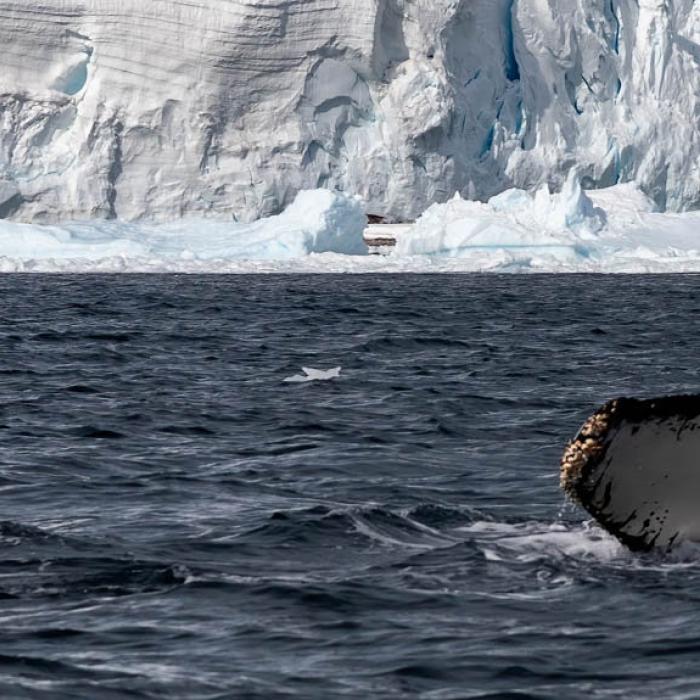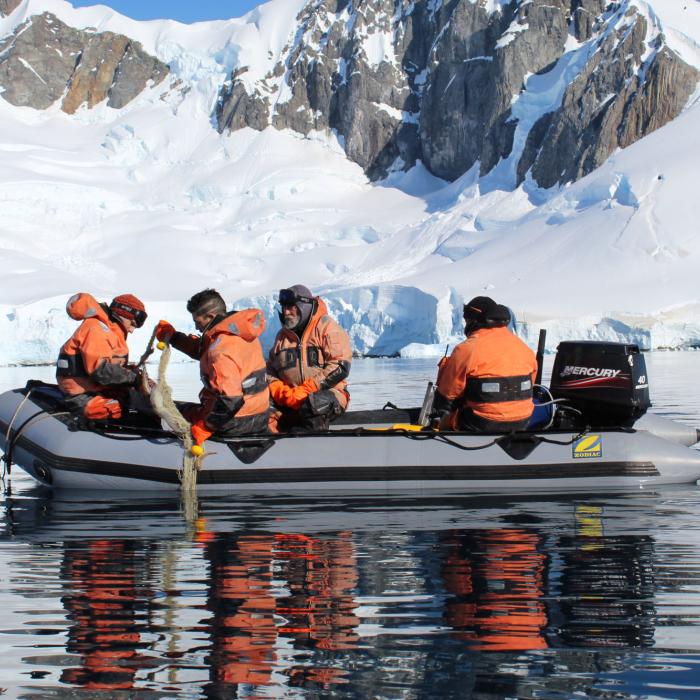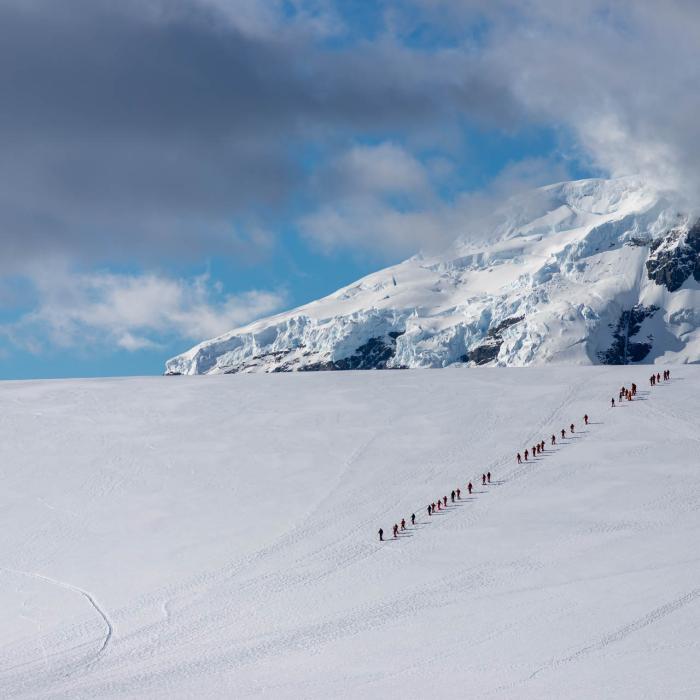
The Role of Antarctic Tour Operators in Research: Does Collaboration Matter?
In these challenging times of global climate change and biodiversity crisis, science is not possible without the active engagement and participation of key stakeholders in a remote destination like Antarctica.
Nowadays, many members of the International Association of Antarctica Tour Operators (IAATO) contribute to scientific research in Antarctica in different ways. Their contribution is fundamental to achieving research objectives in different fields of knowledge, going from the understanding of polar tourists’ behavior and learning to the evaluation of environmental changes in places threatened by global warming.
In 2019, IAATO and the Council of Managers of National Antarctic Programs (COMNAP) launched their first joint Antarctic Fellowship Program with the aims to continue supporting and strengthening the links between tourism and research. We are Daniela and Martina, the first two Early Career Researchers to be awarded with this fellowship and we are currently developing our research on the western Antarctic Peninsula. Our fields of expertise are very different but the support of IAATO tour operators has been fundamental to advance our research.
Martina’s research focuses on Antarctic phytoplankton, tiny microscopic organisms drifting in the ocean that photosynthesize like plants. These organisms eaten by Antarctic krill are the baseline of the marine Antarctic food web. Martina's study is essential to record the biodiversity of western Antarctic Peninsula coastal areas and to better understand how these environments work to predict future changes in the ecosystem due to global warming. Her research has been possible due to the collaboration of Antarctic tour operators with the Citizen Science project FjordPhyto.
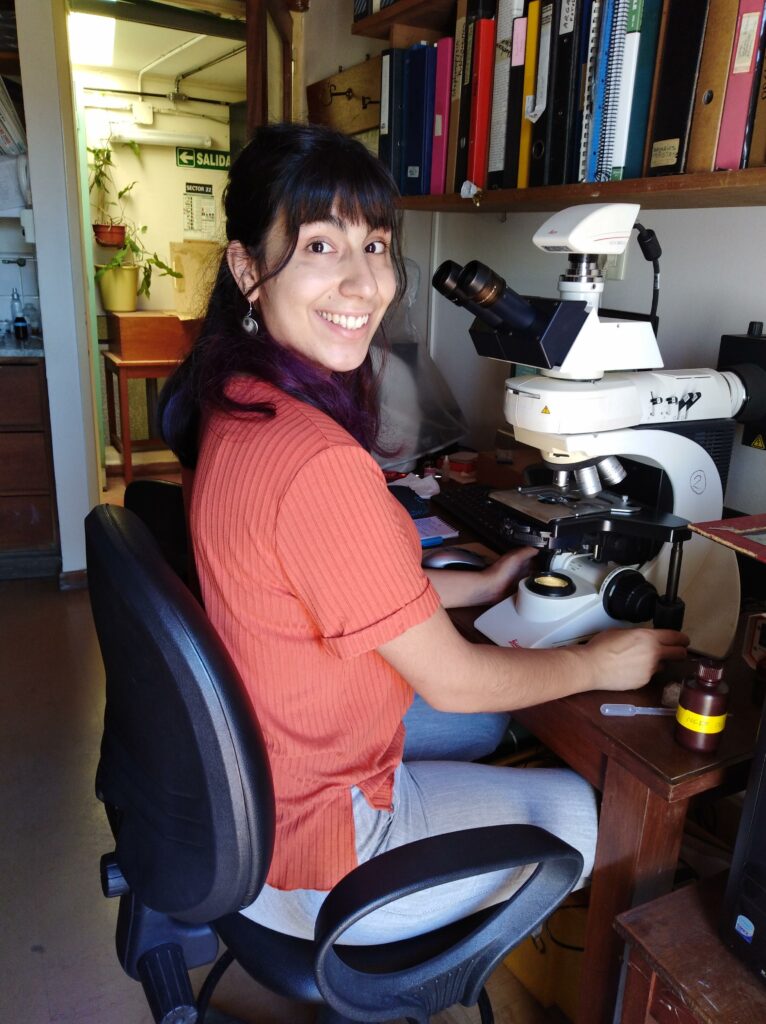 Martina Mascioni, Researcher and Antarctic Fellowship recipient
Martina Mascioni, Researcher and Antarctic Fellowship recipient
Citizen Science is a helpful tool to improve science literacy in the public while collecting valuable data for science, and the FjordPhyto project is a good example of collaboration as it depends directly on the collection of water samples. Tour operators’ role in this project is essential for Martina’s research as they are the only way in which she could obtain a representative phytoplankton sample around the Antarctic Peninsula. This multiyear data is helping her better understand how these environments are changing. Moreover, tour operators’ participation in this project has contributed to visitors having a better understanding of the ecosystem they are visiting and the actual implications that our daily activities may have on this remote area. Visitors who had experienced the FjordPhyto program onboard have expressed how enjoyable it was for them to have a scientist on board to educate them in Antarctic science through lectures and hands-on activities.
On the other hand, Daniela’s research focuses on understanding how different aspects of the visitor experience can influence environmental attitudes, behavior, and awareness among tourists. During the season 2019-2020, IAATO Tour Operators made this research possible by distributing and collecting surveys among their guests, not an easy task, but essential to better understand the implications of the Antarctic journey in the creation of long lasting and transformative experiences among visitors - the ultimate goal of the Antarctic tourism experience!
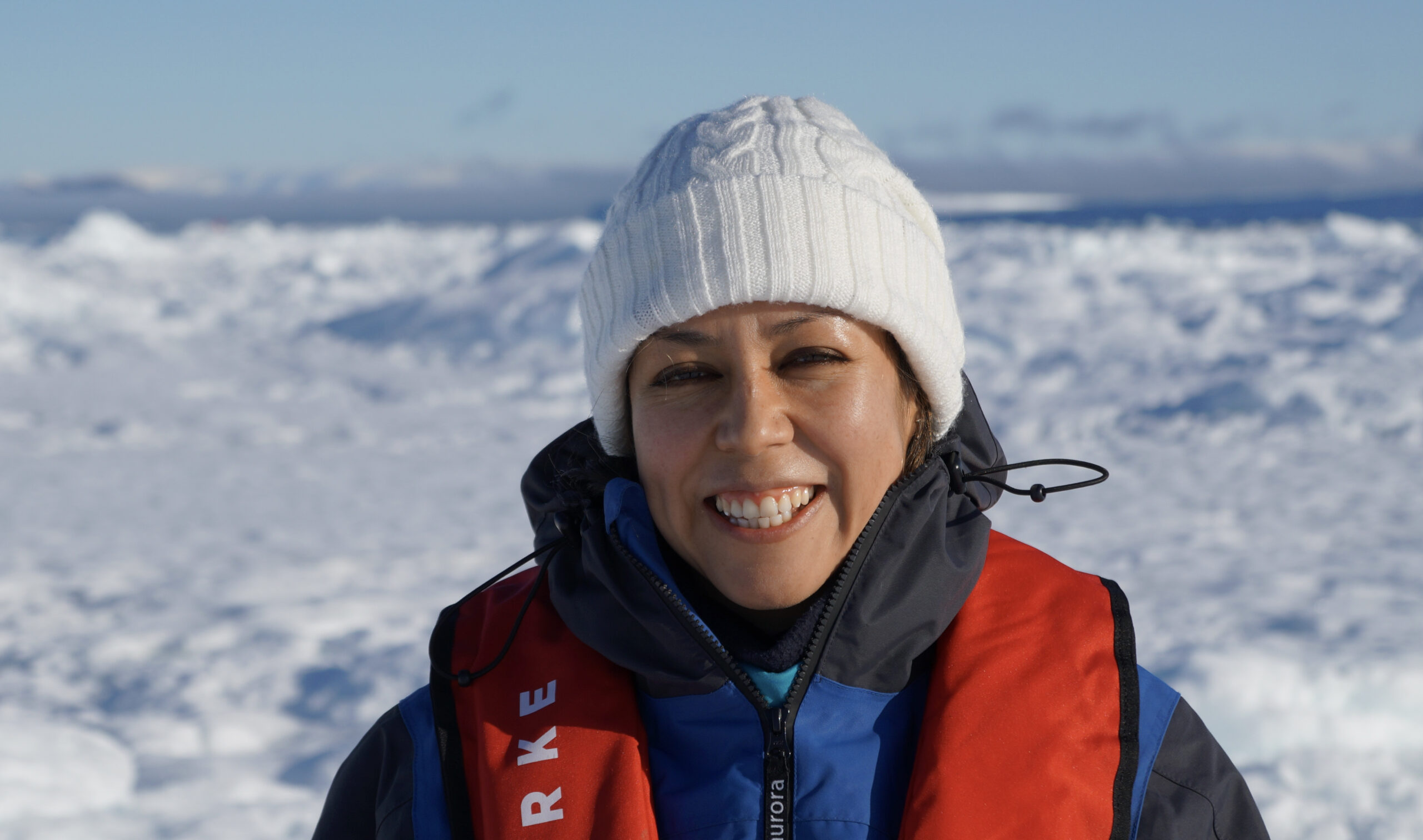 Daniela Cajiao, Antarctic Fellowship recipient
Daniela Cajiao, Antarctic Fellowship recipient
Daniela’s preliminary results show that the perception of what is being learned by visitors influences directly the strengthening and adoption of pro-environmental outcomes. These outcomes could include positive environmental attitudes, environmental behavior, intentions and increased awareness about global pressures. As the Antarctic tourism experience is unique and transformative, through this research Daniela wants to contribute to the industry by providing new insights that could encourage tourism educational programming and communication – two essential components of Antarctic tourism.
Our research could not have been possible without the participation and support of IAATO and their member Operators. IAATO operators can play an essential role in creating advocates for Antarctica by offering meaningful, enriching, and educational experiences for visitors.
Although our projects are very different, our results are connected because they show that the Antarctic experience has the potential to transform visitors into real Antarctic Ambassadors who return home filled with knowledge, passion and interest about the challenges the white continent is currently facing.
Antarctica seems to be a remote place that is isolated from global problems but is closely linked to the things that happen in the rest of the world and affect our daily lives. Therefore, the decisions we make every day matter if we want to save this pristine place, and those include the actions and decisions of tour operators to make research possible. We need more Ambassadors who care passionately about Antarctica and contribute through their actions to protect its uniqueness.
About the Authors Daniela Cajiao & Martina Mascioni
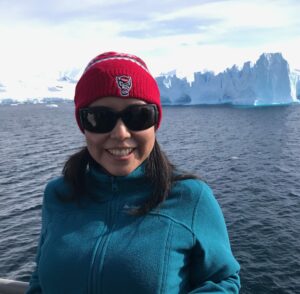
Daniela Cajiao | Researcher and Ph.D. candidate
Daniela is a researcher and Ph.D. candidate at Universidad Autónoma de Madrid where she is expanding her investigation regarding the social dimensions of Antarctic tourism.
Daniela obtained her Master’s degree in Environmental Management (2010) and a Bachelor in Tourism (2005). She has coordinated and provided technical support to multiple projects on conservation and sustainable tourism planning in various protected areas in South America, particularly in the Galápagos National Park.
Ever since her first Antarctic visit in 2011, Daniela has become passionate about the sustainable future of Antarctica. Her main interests revolve around tourism, adaptive management, and decision-making processes. In 2019, Daniela became the joint-first recipient of the IAATO & COMNAP Fellowship for continuing her research on Antarctic tourism. Daniela is a member of the IUCN World Commission on Protected Areas, Tourism and Protected Areas Specialty (TAPAS) Group. She is also a member of the Scientific Committee for Antarctic Research (SCAR), Humanities and Social Sciences Expert Group (SC-HASS). 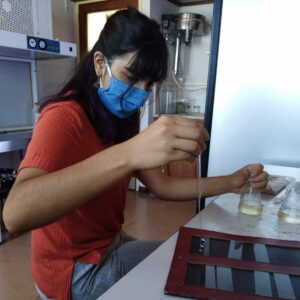
Martina Mascioni | Researcher and Ph.D. candidate
Martina Mascioni is a PhD student of the Facultad de Ciencias Naturales y Museo at the Universidad Nacional de La Plata (Argentina) under her advisors’ supervision, Dr. Gastón Almandoz at the Phycology Division and Dr. Maria Vernet at Scripps Institution of Oceanography, UC San Diego, USA. In 2019, Martina was awarded with IAATO-COMNAP and SCAR fellowships to travel to California and collaborate with Dr Vernet and Allison Cusick, also at Scripps. Due to the pandemic, her travel is currently on hold until international travel is deemed safe and available. Although Martina has a vast knowledge of the white continent, she had never been there! She hopes to join a cruise ship to work with FjordPhyto in the field next season.
Martina was born in Ushuaia, Argentina, one of the cities that most tourists visit before or after their trip to Antarctica. She lived there until she was five years old and then she moved with her family to San Luis, a city in the center of the country. When she was 18, she moved to La Plata city to pursue a scientific career as a biologist. In 2016 she was granted the degree of Bachelor in Biology with honors and the next year started with her PhD thesis focused on the ecology and taxonomy of the phytoplankton of the coastal zones (fjords) of the western Antarctic Peninsula. Martina is passionate about her work with microalgae and although she is finishing her PhD thesis in a couple of years, she hopes to keep working on polar phytoplankton for many more to come.
